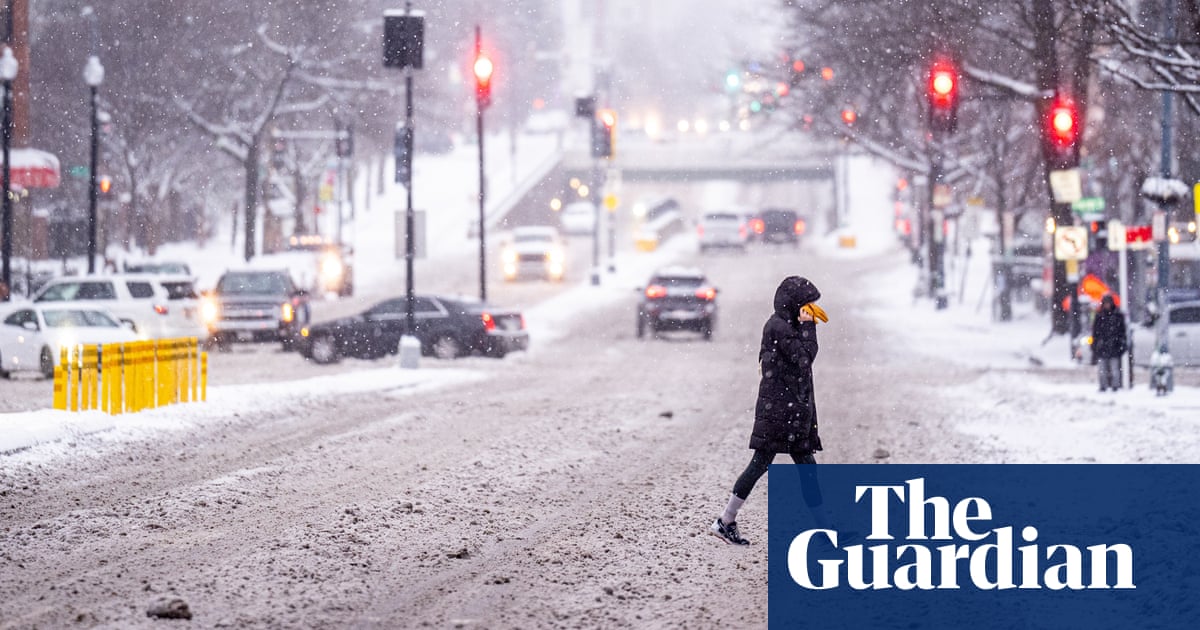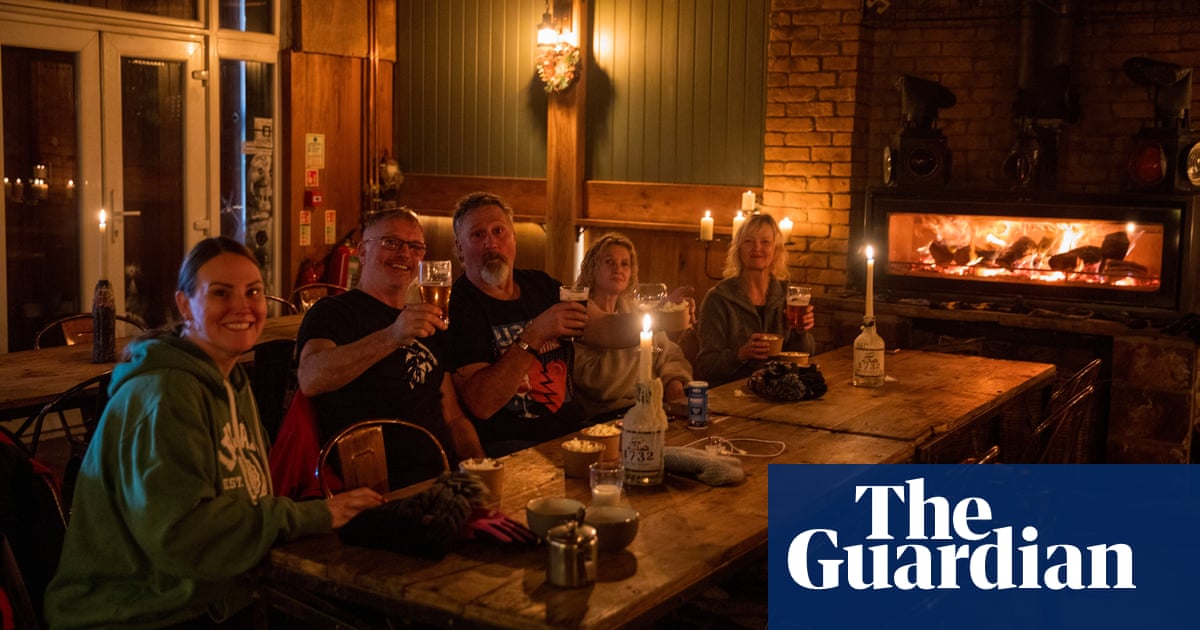Some years ago, the Guardian introduced a feature, Dining across the divide, to show that it was still possible to disagree in a constructive manner. The idea was born at a time when it seemed politics was so polarised nothing could ever grow again on the ground between. Happily, it turns out there’s an appetite for common-ground stuff, illustrated not least by the ability of two middle-aged political podcasters determined to talk rationally to fill the O2 Arena, as Alastair Campbell and Rory Stewart did a fortnight ago.
Working politicians are taking note. There’s a recognition that many voters don’t like being shouted at, or shouting at all. Take the lament that the Conservative MP Neil O’Brien posted on his Substack page a few days ago – reported by the BBC as a “plan to make Britain vaguely civilised again” – about the decline of orderliness on the streets of Britain. Here’s a surefire winner that’s bound to get everyone to agree. Not even the most effete liberal welcomes “people playing obnoxious music on public transport”, or the mass trip-hazard of abandoned ebikes and scooters on the pavement, or the kind of petty vandalism that makes so many city streets look neglected. He’s right that it’s unsettling and sometimes downright intimidating.
But it turns out that his anxiety about incivility on the streets is just the bait. It’s not really what he’s complaining about – wisely, you might think, given the part played by the Tory governments in which he served, as special adviser and then junior minister, in undermining social cohesion. He has realised that public spending does actually affect the capacity of local government, the police and community groups to support just the kind of orderly society that he fears is under threat. His lot “prioritised other things more”, he admits.
And, as he doesn’t quite say, life for millions of people would indeed be much, much better (as well as the streets cleaner and tidier) if English councils’ spending hadn’t been slashed to only 82% per capita of what it was in real terms in 2010-2011. In his list of “some of the things we should do”, he blithely announces: “Councils to sort empty shops … Councils and housing associations to sort dumping of fridges / mattresses / broken cars in gardens … Councils to sort derelict or unsightly buildings …” Of course, councils are far too busy (another point he doesn’t make) trying to find enough cash to meet their core responsibilities to “sort” anything else.
Imagine if it had been different. If early years support hadn’t been driven off the agenda. Along with, say, spending on sixth-form colleges and youth groups. But credit where it’s due. O’Brien does nod, fleetingly, to the impact of austerity before he segues boldly into the role of personal responsibility with an approving quote from John Adams on self-restraint – an area where he and his colleagues might fear to tread, the examples of personal responsibility set by some recent prime ministers being less than inspiring.
Finally, he reaches his real villains: the privileged middle classes and “elites” who are obsessed with individual human rights and actually don’t mind signs of disorder like graffiti, especially when it’s Banksy’s “painfully obvious and trite” work.
I’m now trying to imagine that I’m sitting across the table from Neil O’Brien in a fantasy version of Dining across the divide. Where, I am asking, do human rights cross paths with people behaving thoughtlessly? Ah, I imagine him saying, it’s at the root of the trouble the left has when it thinks about disorder. He cites school exclusions, and points to a recent Guardian report about a group of human rights lawyers who want to represent children and their families at the independent review panels that are the final arbiters on an exclusion. He says the left sees a child whose needs aren’t being met when what he sees, and what is really there, is a disruptive and potentially dangerous child who’s a threat to the safe and nurturing environment every school wants to provide.
It’s an interesting example (I hear myself saying in a discursive manner, as if considering the ethics of, say, slug pellets). Because obviously schools only exclude children they cannot manage on the resources they have available. Wouldn’t it be better if schools set out to find ways to include rather than exclude children, and had the funding to do it?
Unfortunately, O’Brien has already swept on to give another example of the left’s problem with disorder (at least he does in his Substack post): “We have a prisons minister who thinks that only a third of prisoners should be in jail and a Justice Secretary who thinks no women should be in jail.” Those well-known handwringers the Prison Officers’ Association broadly agrees, I murmur politely. “And a Labour MP Kim Johnson is taking through a private member’s bill designed to stop prosecution of people who facilitate or help commit serious crimes,” he says. Ah, that would be an attempt to amend the joint enterprise law, acknowledged back in 2016 by the supreme court to have taken a “wrong turn”.
Lefties think these are good ideas, he suggests, because they think they’re cool, and they don’t want to look (his word) “cringey”. Mmmm. Maybe they just think they actually are good ideas? And possibly O’Brien is really eliding a perfectly reasonable assertion about the pleasantness of living in an orderly society with an entirely unreasonable set of assertions to explain why, just now, not all of us are.
And maybe, just maybe, his ultimate objective is to seed the idea that behind all those infuriating people having speakerphone conversations on the bus and dropping litter and getting offensively drunk, there is the Human Rights Act that somehow has gone from protecting us from abuses of power to preventing us from behaving responsibly.
It’s a win-win, in the O’Brien calculus. Brand human rights a yobs’ charter, a shibboleth of the woke elite – and divert attention from the devastating consequences of a decade of austerity.
-
Anne Perkins is a writer and broadcaster, and a former Guardian correspondent

.png) 2 months ago
26
2 months ago
26













































